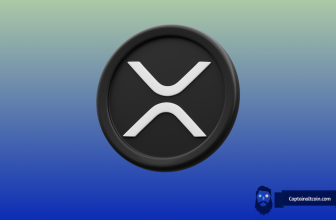
Credit: Saj Shafique – Unsplash
The Middle East and North Africa may yet be a small crypto market. But crypto adoption is going through the roof across the region. Incidentally, a report by blockchain analysis firm Chainanalysis has shown that the MENA was the fastest-growing cryptocurrency market worldwide in 2022. The widespread acceptance of blockchain technology comes with challenges, though, as Muslim scholars have been debating over what their faith stance shall be toward the crypto universe. Hence for some observers, Islamic cryptocurrencies might be the answer.
Crypto enthusiasm is nothing new across the Middle East. Countries like the United Arab Emirates and Turkey have long been gripped by crypto frenzy. In Turkey alone, circa 8 million people engaged in crypto exchanges over the past year. With rampant inflation, and a government monetary policy many deem unable to safe keep the value of an ever-weaker Turkish lira, cryptocurrencies feel like a life-saving investment opportunity to its advocates. But in countries where religion is prevalent in all aspects of life, cryptocurrencies have stirred debate among both scholars and devout Muslims.
The Qur’an, indeed, forbids the earning of interest from loans. Muslims shall, thus, avoid making money from money. These moral principles underpinning the Islamic faith have led to the rise of so-called Sharia-compliant financial services within the frame of Islamic finance. Yet where do cryptocurrencies fit in that picture? The question is a burning one.
Prominent voices have been vocal about their disapproval, such as the Indonesian council of Islamic Scholars issuing a fatwa against the use of crypto in November of 2022. Head of religious decrees Asrorun Ni’am Sholeh called out cryptocurrencies for their “elements of uncertainty and wagering.” He added that dealing with crypto was akin to “a gambling bet.” Alongside interest-earning, gambling is indeed a prevailing taboo across the Middle East. Still, players can make up for the lack of land-based gambling venues with the best online casinos. Such platforms work in much the same way as actual casinos, boasting classic tabletop games and hundreds of machine slots. Yet users are advised to get their hands on a VPN to play it safe. Top websites also offer invaluable tips on anonymous payment methods, including cryptocurrencies such as Bitcoin and Ethereum.
No less pious Muslims are taking an opposite stand, however. A tech-savvy vanguard is making the case for cryptocurrencies offering a sound alternative to the traditional banking system for those seeking to live faithfully per Islamic law. Meanwhile, emerging companies have been launching bona fide Islamic finance-based coins in a bid to reinstate trust in cryptocurrencies after the turmoil of the past year.
2022 has been a rough patch for all crypto traders out there, to be sure. From the FTX debacle to the loss of over a trillion dollars in value throughout the year, the industry has seemingly been going from bad to worse. The ethical practices of Islamic finance can thus be applied to the crypto universe, according to companies like Haqq Association. This non-profit, community-run network created the Islamic Coin in 2021. Leveraging the transparency of the blockchain, the innovators behind this one-of-a-kind initiative subsequently launched their own Haqq Chain network to put forward a compliance verification platform overviewed by a dedicated Sharia board. Entrepreneurs can, therefore, visit Sharia Oracle to verify whether their business projects are compatible with Islamic law. The platform then ensues a Sharia verification mark, which acts as a label of community trust.
Haqq’s research shows that over 50 decentralized products adhering to the principles of Islamic finance have launched recently. Whether these projects are fully Islamic or not remains open to interpretation. As a matter of fact, Islam has a storied history of scholarship on controversial financial issues, with passages of the Qur’an pertaining to money being discussed at length for generations. And with no central authority given the means to make the final call on crypto, debates are bound to keep stirring the Muslim world.
But an increasingly digitally connected youth is already coming up with bold ideas to reconcile technological advances with strict compliance to their faith. Besides, many majority-Muslim countries like Saudi Arabia and Qatar plan to invest massively in crypto and crypto-adjacent ventures like the metaverse. In the meantime, the UAE sets out to become a global crypto hub. Thus, the crypto hype might not subside any time soon in the Middle East despite the admonition of religious councils.







I’m interested to invest